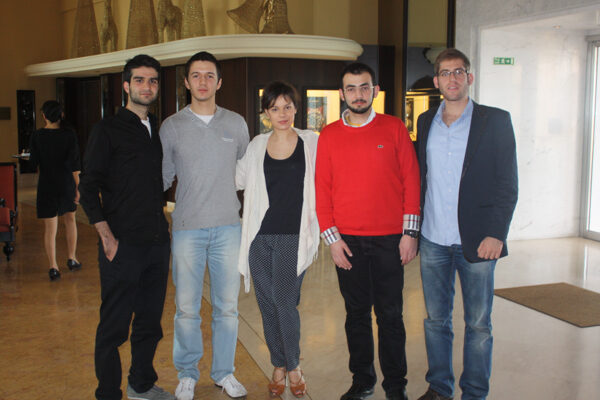
Turkish students become candidates to ESU
“We are one of the student unions in the world that has the highest number of students represented, which amounts to more that four million. This situation brings a significant duty and responsibility for our board to figure out what are the common problems in higher education for students,” says Ozan Demirer, member of the Student Council of Turkey (STC) responsible for relations with the European Students’ Union (ESU).
The board members of ESU met in Valletta, Malta, on Monday 3 December 2012 where they decided to give the SCT the status of a candidate to the union. The SCT will therefore join two other students’ associations that have applied for membership to ESU, namely KSS in Albania and NSS in Ukraine.
“We are highly motivated for being a part of ESU and represent the voice of university students at the international level. Moreover, both ESU and the SCT will benefit from this membership because of the cultural diversity and the large number of higher education students that are in Turkey. Furthermore, the geographical position of Turkey helps our council to keep closely in touch with student unions located in the eastern part of Europe. Therefore, ESU will have a greater influence in this region after our full membership,” says Demirer.
The Erasmus porgramme is important
The SCT was founded in 2005 and its offices are located in Ankara. The SCT is the only legal representative of students for all higher education in Turkey. It focuses on students’ rights and problems. Demirer says that in order to establish a close contact with students, the board organises meetings with representatives of universities at a local level and notes the common issues as well as problems of minorities within institutions of higher education.
“The Erasmus Programme is one of our concerns for the higher educational policies in Europe because that programme has a significant effect on the integration of different cultures and gives many students valuable experience regarding the lifestyle and educational system of different countries. There are some issues concerning the funding of this programme and this point has to be considered carefully in the educational policies in Europe,” Demirer sums up.
Study trip to be organised
In 2011, the SCT started a reformation process aimed at sharpening its focus on students’ rights and problems they face. Demirer says that the SCT has reformed its legislation and made several improvements to its structure during that period. “These changes will come to a conclusion in the near future and after that point the SCT will have a stronger structure for creating suitable solutions for students’ problems and actively contribute to the projects and other ongoing processes at ESU,” Demirer adds.
Candidates to ESU retain their status for at least a year and have to fulfill a certain criteria in order to join the union. Representatives of ESU organise study trips to the candidate countries to monitor if the applicants comply with the criteria. The board members of ESU then decide whether the candidate should be accepted or rejected as a member to ESU when the appropriate moment comes.
— END —
For more information, please contact:
Karina Ufert, ESU Chairperson: +32/473.669.892 // karina@esu-online.org or Robert Hlynur Baldursson, ESU Communications Manager: +32/473.669.894 // robert@esu-online.org

The European Students’ Union, headquartered in Brussels, is the umbrella organisation of 47 national unions of students from 38 European countries. ESU represents and promotes the educational, social, economical and cultural interests of students at the European level. Through its member unions, ESU represents over 11 million students in Europe. To find out more about ESU, follow us on Twitter @ESUtwt, check out or Facebook page or visit www.esu-online.org. ESU celebrates its 30th anniversary in 2012.
